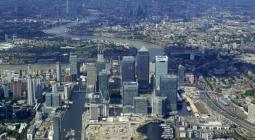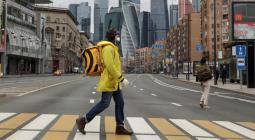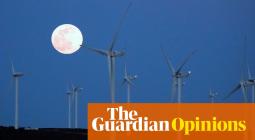COVID -19: The global economic outlook and the implications for sustainable finance.

Global co-operation is required for dealing with both a pandemic like COVID-19 and climate change. Environmentalists argue that COVID-19 economic rescue plans must be green to meet requirements for climate action.
Global co-operation is required for dealing with both a pandemic like COVID-19 and climate change. Environmentalists argue that COVID-19 economic rescue plans must be green to meet requirements for climate action. Campaigners are increasingly concerned imprudent measures will force the world into a high-carbon future. The Bank of England is resuming its quantitative easing programme to create liquidity in the financial system similarly to the 2008 crash, though there are concerns in some quarters as the programme has previously bought bonds from fossil fuel companies.
The OECD Interim Economic Outlook has confirmed that the impact of the COVID-19 outbreak on the global economy is going to be extremely severe. Forecasts of the global economic toll of the COVID-19 are worsening as the pandemic continues. Though a bleak outlook for global financial markets there is a glimmer of hope were sustainability is concerned.COVID-19 could inadvertently contribute to meaningful progress toward meeting the goals of the Paris Climate Agreement and several of the United Nations Sustainable Development Goals.
The coronavirus outbreak is a deeply unfortunate situation that is unquestionably causing widespread suffering. While this is regrettable, we should not dismiss that the event provides an opportunity to make some significant headway towards a timely and necessary sustainability transition for financial markets. From an in investment angle the impact on economic activity and financial markets has been significant.
The global spread of coronavirus has severely impeded the outlook for global growth. Its impact was initially expected to be limited to one quarter, but as that has been extended, so too have equity market declines and volatility. Europe, now the epicentre of the virus outbreak has seen the sharpest falls in US dollar terms. High levels of volatility are to be expected with the extreme geopolitical disruption which will no doubt continue for some time and affect underlying equity returns and overall outlook for recovery. The fear of the unknown is inevitably affecting market moves coupled with the deterioration in the economic environment and downgraded growth expectations. Unprecedented monetary and emergency fiscal stimulus will not be the panacea for the overall global downturn that all markets will inevitably endure.
As virologists and epidemiologists continue to map the new virus risks of new outbreaks remain. While most governments are initiating more stringent social distancing measures to contain the spread of the outbreak, the economic damage to the global economy could be significant. In recent days economists have frantically tried to update their forecasts for economic activity in 2020 which is difficult given the high levels of uncertainty. On a positive note the global policy response to maintain liquidity in markets and inject stimulus to create the necessary conditions for a robust recovery from this unprecedented shock to the global economic system, though social distancing and lockdown measures have significantly impacted GDP.
For many financial market participants the outlook has changed materially, and the market is repricing accordingly. To navigate this turbulence successfully many global financial institutions must take a thoughtful approach to both tactical and strategic asset allocation. The sustainable finance agenda must not lose momentum during these uncertain times and green finance should still be at the forefront of a globally changing economy facing years of climate and economic uncertainty.
The current pandemic will ingrain new social and economic norms as the world adjusts to a new reality and a new era of economic uncertainty. Epidemics and pandemics are both a standalone business risk as well as an amplifier of existing trends and vulnerabilities. There are benefits of integrating environmental, social and governance (ESG) factors into the investment process in an effort to de-risk long term portfolios and identify critical growth opportunities. As well as examining multiple risk factors to minimise exposure to threats such as climate change. This extends to investing in methods to address pandemic crisis by considering all stake- holders, investors may experience better long-term returns with lower volatility.
The volatility of the markets under the current coronavirus situation are not likely to fully stabilise until the virus is either contained or a vaccination is developed. There have been inevitable short-term shocks to the system though how far this will take hold structurally is too early to tell. Once COVID-19 is contained will much of the world return to complacency? This is a likely scenario and will the global economy remain under-prepared for the inevitable next outbreak? Some financial market participants argue that now is the time to invest in financial resilience programmes, to be better prepared to respond and recover and systems should therefore be aligned with climate risk resilience programmes.
7 April 2020
Climate Action





